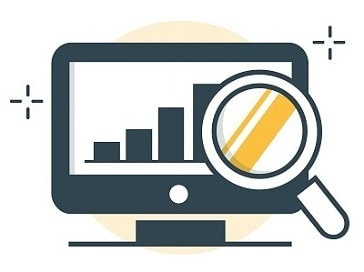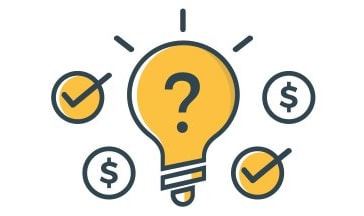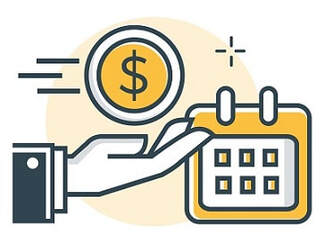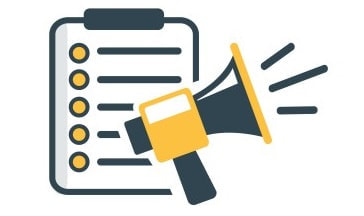How to Build a Budget and Manage Your Money
Get in control and learn how to how to build a budget with our expert guide. Take control of your finances right now with our trusted budget resources.
Updated 26 February 2022
Traditional budgets have many flaws – while they consider what you spend every month, they don't address the reality of daily life. Many budgets include income, rent, electricity and supermarket expenses, but what about takeaway coffee, school uniforms, annual holidays and car repairs?
This guide aims to fix the problems with three budget options that can still leave you with a cash crunch, unpaid bills and/or an overdraft. We aim to help you manage your cash and avoid any surprises by taking a complete look at your expenses to help you manage money with confidence and purpose.
This guide covers:
Know this first: This guide does not cover budgeting apps - our dedicated guide to the best budget apps outlines everything you need to know.
This guide aims to fix the problems with three budget options that can still leave you with a cash crunch, unpaid bills and/or an overdraft. We aim to help you manage your cash and avoid any surprises by taking a complete look at your expenses to help you manage money with confidence and purpose.
This guide covers:
- What is overspending?
- Why should I budget?
- Know this: A Budget needs to have a purpose
- Budget options
- Don't walk towards a debt crisis – get in control before it's too late
Know this first: This guide does not cover budgeting apps - our dedicated guide to the best budget apps outlines everything you need to know.
What is overspending?
Overspending is not complicated - it just means spending more than what you earn. Such a situation can start off small – paying less than the full balance owed on your credit card or going into overdraft to pay for a necessary purchase like fixing the car. It can also involve other decisions, such as buying something with long-term finance while being unsure if you're able to repay what's owed in the interest-free period.
Overspending doesn't happen all at once – it creeps up. And debt is often expensive. Not making a repayment means interest costs, which soon eats into the money you can spend on what you actually need. Overspending is never good, and solving the issue comes down to living within your means.
Overspending doesn't happen all at once – it creeps up. And debt is often expensive. Not making a repayment means interest costs, which soon eats into the money you can spend on what you actually need. Overspending is never good, and solving the issue comes down to living within your means.
Why should I budget?
A budget, when properly calculated, is the most accurate tool to measure your finances. It tells you exactly where your money is spent. It doesn't matter if you are a high-income earner or a beneficiary, unless you're a hermit spending a fraction of what you earn, it's a sensible idea to do a budget. Most importantly, a budget answers two questions:
1. Do I spend more than I earn?
You probably don't need a budget to tell you this – if you're spending down to your last dollar, going into overdraft or drowning in debt, you're like to be overspending. However, without preparing a budget, it's tough to see where your money goes and what you can cut back on. If you're continuously crashing into debt by way of unpaid credit cards, store cards and/or overdraft, it's not a happy existence.
If you're significantly overspending, a debt crisis is a real risk, and for this reason alone a Budget Planner is essential to give a full assessment of your finances and confirm if you do spend more than you earn.
If you're significantly overspending, a debt crisis is a real risk, and for this reason alone a Budget Planner is essential to give a full assessment of your finances and confirm if you do spend more than you earn.
2. What can I afford to spend?
The Budget Planner will tell you where you are spending, which allows you to adjust and prioritise what you do with your money. The aim is to avoid overspending and live within your means. How successful a budget will be comes down to one thing – willpower. If you can follow the budget, then you'll forever be happy in a financial sense.
Know this: A Budget needs to have a purpose; otherwise you'll tread water and continue to overspend
Budgets typically focus on one month, but no month is like another, and therefore you're setting up yourself to fail by underestimating what you really spend. Christmas presents, a new appliance and holiday costs are seldom factored into a budget, yet it's these costs which can stretch finances the most.
A traditional budget will be vague - categories like 'motoring', for example, make it near-impossible to account for all of the motoring costs that you have to pay every year. 'Motoring' costs are not budgeted by allocating $100 or $200 a month, but by exhaustively adding up everything motoring-related. This means 'motoring' must include WOF costs, repairs, new tyres, petrol, car insurance, roadside assistance cover, parking fees, speeding fines and more.
Before you deep dive into setting up a budget, consider the tips for completing it successfully:
A traditional budget will be vague - categories like 'motoring', for example, make it near-impossible to account for all of the motoring costs that you have to pay every year. 'Motoring' costs are not budgeted by allocating $100 or $200 a month, but by exhaustively adding up everything motoring-related. This means 'motoring' must include WOF costs, repairs, new tyres, petrol, car insurance, roadside assistance cover, parking fees, speeding fines and more.
Before you deep dive into setting up a budget, consider the tips for completing it successfully:
1. Who are you filling out the budget for…you, you and your partner or your family?
If you're part of a couple living together, it's likely your finances cannot be separated. This means you're best to sit down and complete it together. If you're a parent with children, you'll need to consider everything that everyone living with you spends. The good news is it's not as difficult as it sounds and you can make real progress quite quickly.
2. Are you unsure of the exact numbers? Estimate a larger amount to avoid being caught out.
Purposely underestimating your expenses is a big budgeting no-no – by doing so, you're only causing misery later on. Try to be as accurate as you can, and if you are not sure, put down a number that's a bit larger than what you believe you spend. Be sure to avoid double-counting too – if you've put car insurance in the motoring section, don't list it again in the insurance section.
3. Do you have a credit card? Include all the debt you have in the credit card section
The Budget Planner's credit card section's purpose is to cover ALL of your existing credit card debt. This section doesn't relate to credit card spending and allocate it to the various categories e.g. groceries and petrol charged to your credit card – those expenses go in food and motoring respectively.
4. How do you budget for holidays?
When you go away, you'll spend on things you would at home, like groceries, heating and petrol. To be cautious, and because holidays can be more expensive even for the best budgeter, you can add in your holiday costs and reduce your home expenses slightly to counteract.
As an example, if you usually spend $150 a week on groceries, $50 on petrol and $50 on heating, if you go away for a week, you'll spend $200 less at home, but it's still included in your weekly budget. Your holiday costs are budgeted on top of this. If it's too difficult to calculate, don't panic - leave it as is – the more expenses loaded into your budget, the better off you'll be at managing your finances.
If you're part of a couple living together, it's likely your finances cannot be separated. This means you're best to sit down and complete it together. If you're a parent with children, you'll need to consider everything that everyone living with you spends. The good news is it's not as difficult as it sounds and you can make real progress quite quickly.
2. Are you unsure of the exact numbers? Estimate a larger amount to avoid being caught out.
Purposely underestimating your expenses is a big budgeting no-no – by doing so, you're only causing misery later on. Try to be as accurate as you can, and if you are not sure, put down a number that's a bit larger than what you believe you spend. Be sure to avoid double-counting too – if you've put car insurance in the motoring section, don't list it again in the insurance section.
3. Do you have a credit card? Include all the debt you have in the credit card section
The Budget Planner's credit card section's purpose is to cover ALL of your existing credit card debt. This section doesn't relate to credit card spending and allocate it to the various categories e.g. groceries and petrol charged to your credit card – those expenses go in food and motoring respectively.
4. How do you budget for holidays?
When you go away, you'll spend on things you would at home, like groceries, heating and petrol. To be cautious, and because holidays can be more expensive even for the best budgeter, you can add in your holiday costs and reduce your home expenses slightly to counteract.
As an example, if you usually spend $150 a week on groceries, $50 on petrol and $50 on heating, if you go away for a week, you'll spend $200 less at home, but it's still included in your weekly budget. Your holiday costs are budgeted on top of this. If it's too difficult to calculate, don't panic - leave it as is – the more expenses loaded into your budget, the better off you'll be at managing your finances.
How long does completing the budget planner take?
We estimate that the average person will take about two hours to complete it. We suggest getting comfortable with a drink and enjoy the challenge to take on the role of a detective. Ultimately, the more you put into it, the better your budget will be. You will also find out where and what you are spending your money.
What do I need to start?
To make life easier, we recommend downloading or collecting the following:
It's likely you'll be surprised to see how many things you spend your money on, and how much you spend on certain things. To make sure your budget planner is 100% effective, you need to be completely honest, and putting in a bigger number rather than a smaller number is the best way to give you some breathing space.
Remember, there are always ways to save – cutting back and finding low-cost alternatives is easy enough, so don't feel guilty about it.
We estimate that the average person will take about two hours to complete it. We suggest getting comfortable with a drink and enjoy the challenge to take on the role of a detective. Ultimately, the more you put into it, the better your budget will be. You will also find out where and what you are spending your money.
What do I need to start?
To make life easier, we recommend downloading or collecting the following:
- Bank and credit card statements – the most recent three months is preferred. For example, if today is April 15, take the statements for January, February and March. This will give you a good overview of your direct debits, automatic payments etc.
- Supermarket receipts – if you can hunt for these, they will provide you with a good idea of where your grocery bill goes.
- Payment slips – while your bank statements contain your net pay, student loan repayments and child support are taken out of your gross income, and being aware of those costs is essential.
It's likely you'll be surprised to see how many things you spend your money on, and how much you spend on certain things. To make sure your budget planner is 100% effective, you need to be completely honest, and putting in a bigger number rather than a smaller number is the best way to give you some breathing space.
Remember, there are always ways to save – cutting back and finding low-cost alternatives is easy enough, so don't feel guilty about it.
How to Build a Budget
Creating your budget may feel time-consuming, but you only have to do this part once. When you need to make changes, chances are it will be in one area or another rather than a complete overhaul. Here are the steps:
Choose Your Budget Plan
Now it’s time to choose your budget plan. We suggest choosing one of three options, depending on what feels more natural to you.
Important: This guide does not cover budgeting apps - our dedicated guide to the best budget apps outlines everything you need to know.
- Figure out your income – Look at your monthly pay stubs. How much money do you bring home each month? Next, think of any miscellaneous income you may receive, such as income from side gigs, dividends, maturing CDs or bonds. Make sure you use a figure that is after taxes and expenditures.
- Choose your budget – There are numerous budgeting plans, but a few of our favourites include the envelope budgeting plan, zero-based budget plan, and the 50/30/20 plan. We’ll discuss each of these in detail below.
- Check yourself – Once you set a budget, you need to track how you’re doing on it. Find an app or software program that you like. If not, you can create your own spreadsheet or use old-fashioned pen and paper – whatever you are comfortable using.
- Pay yourself automatically – If your company offers direct deposit, set it up so that the portion of your budget that you allocated for savings or investing gets deposited directly into that account. It’s kind of like the ‘out of sight, out of mind’ mentality. You pay yourself first and you are less likely to spend it.
- Be flexible – Remember, a budget isn’t set in stone. You are free to make changes as you see fit. Revisit your budget as often as you feel necessary and make small tweaks (preferably one at a time) to see how things change.
Choose Your Budget Plan
Now it’s time to choose your budget plan. We suggest choosing one of three options, depending on what feels more natural to you.
- Envelope budget
- Zero-based budget
- 50/30/20 budget
- Bonus budget - the Barefoot Investor method
Important: This guide does not cover budgeting apps - our dedicated guide to the best budget apps outlines everything you need to know.
How Does the Envelope Budget Work?The envelope budget has an envelope for each category that you designate. Here are the steps:
The Pros and Cons of the Envelope Budget Pros:
Cons:
|
How Does the Zero-Based Budget Work?With the zero-based budget, every dollar has a job. Your monthly income minus your monthly expenses should equal zero. That’s how you know you did it right. Here are the steps:
You might wonder what you should do with the ‘extra’ income or the money that doesn’t have a job. This is a good problem to have. This money should be placed in savings, investments, or any other account that you designate – just give it a job. If you don’t have an emergency fund, start one. Car repairs, medical expenses and family costs can be significant. If you have a short-term goal, such as going on holiday, fund it. Just don’t let any money sit without a ‘job.’ The Pros and Cons of the Zero-Based Budget Pros:
Cons:
|
How Does the 50/30/20 Plan Work? (MoneyHub's favourite budgeting technique)The 50/30/20 plan means that 50% of your income covers the fixed expenses, 30% covers the ‘wants’, and 20% pays your debts down or goes into savings. Here are the steps:
The Pros and Cons of the 50/30/20 Budget Pros:
Cons:
|
Bonus budget - the Barefoot Investor methodif you follow the Barefoot Investor, there is another alternative similar to the 50/30/20 budget. You can read more in our Barefoot guide. In summary, the accounts you'll need are:
|
Know this: Creating a budget is one of the most important things you can do for your financial present and future. It doesn’t take long and is flexible enough that you can change it at any time should you find it not working for you.
Don't walk towards a debt crisis – get in control before it's too late
- Spending more than you earn may not seem like a problem today, but it can lead to a total disaster tomorrow. Don't run the risk of a debt spiral.
- Overspending today has two outcomes - destroying your savings, which is the least-worst case, and having to borrow, which is the worst case. The borrowing to pay for funding your lifestyle gets really expensive, really fast. It keeps rising, and there's little consideration about paying it back.
- Throughout New Zealand, such situations are all too common. It doesn't just ruin your finances; it can affect your family, relationships and mental health. This is no understatement.
- It’s a terrifying situation when you have no money in your bank account, and you can't borrow any more while existing debts you owe have people demanding to be repaid.
No one is insulated from debt. It can happen to any family in New Zealand, rich or not, 'nice' or not, hard-working or not. Many people all over the country have bumper salaries and sky-high personal debts. If your non-mortgage debts add up to more than half your after-tax pay, it's a real problem.
Credits
MoneyHub would like to attribute many of the fundamental principles and points to MSE (UK). The spreadsheet is based on the freely available work of MSE and has been adapted for New Zealand needs. Full credit and ownership vests with MSE (UK).
Budgeting Tools:
Financial Independence Guides:
Money Tips:
MoneyHub would like to attribute many of the fundamental principles and points to MSE (UK). The spreadsheet is based on the freely available work of MSE and has been adapted for New Zealand needs. Full credit and ownership vests with MSE (UK).
Budgeting Tools:
Financial Independence Guides:
- How to Retire Early
- FIRE Explained
- The Four Percent Rule
- Five Types of FIRE Plans
- Getting FIRE’d in New Zealand
- FIRE and NZ Real Estate
- Achieving Financial Independence, Faster
Money Tips:









